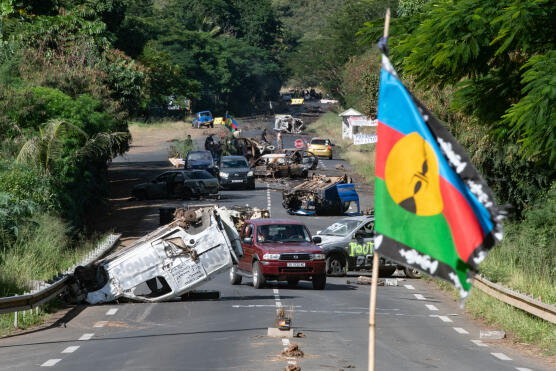Days after France cancelled emergency measures in New Caledonia to quell widespread protests in its Pacific territory, it is rushing to ensure residents of the troubled archipelago can vote in upcoming European elections, The Washington Post reports.
But indigenous Kanaks, who have long sought independence, are not rushing to the polls.
European elections are traditionally low turnout in New Caledonia, whose votes mean little compared to the 48 million voters in mainland France and other overseas territories. European funds rarely reach the territory’s budget. Only 20 per cent of voters took part in the 2019 election.
Now, with barricades of charred cars remaining in New Caledonia’s capital, even after a visit by French President Emmanuel Macron to try to ease tensions, turnout is expected to be even lower. A woman waiting for bread told broadcaster France Info:
I don’t even know what it’s about. I’m not going to vote because we’re not in the mood for that.
Most of New Caledonia’s 270,000 residents are eligible to vote in European elections, the second largest display of democracy after India’s recent elections. Starting Saturday, nearly 400 million voters will choose 720 members of the European Parliament, influencing everything from global climate and security policy to migration issues and relations with powers such as China and the US that are asserting themselves in the South Pacific.
But for many in New Caledonia, where tensions between those seeking independence and those loyal to France have long reignited, it seems far away.
Aftermath of the riots
Recent riots, protests, clashes, looting and arson have left seven people dead. This prompted Macron to declare a state of emergency on May 15 and urgently deploy 3,500 French troops to the country.
French Prime Minister Gabriel Attal said the government was doing “everything necessary for elections to take place” in the Pacific archipelago. While the violence subsided, pro-independence leaders urged their supporters to “continue their resistance” to France.
Parts of the capital, Nouméa, remain no-go zones despite a statement from France’s interior ministry on Friday that authorities had regained full control of the situation. Bus services have not resumed, nor have school services. Attal admitted in an interview with France Info this week that New Caledonia is “far from returning to normalcy.”
Alan Boufeneche, director of a civic initiative in Nouméa, said the French military delivered ballot boxes and voting materials on Monday. Police and army will accompany municipal officials to distribute them to 57 polling stations, which will grouped in six polling stations in the capital instead of the usual 37 for security reasons.
Speaking to France Info, Boufeneche said several municipal offices had been damaged and many cars set on fire as a result of the violence, “so we are making do with what we have.”
Causes of protests
The violence erupted in response to Macron’s government’s attempts to amend the French constitution and change the electoral rolls in New Caledonia. Opponents fear the legislation will benefit pro-French politicians in New Caledonia and further marginalise the Kanaks, who have long sought liberation from French rule amid sharp economic disparities and decades of discrimination.
Residents have French passports and the right to vote in French presidential elections. An electoral college of 578 elected New Caledonians vote in French parliamentary elections, including for two seats in the French Senate – 10 time zones from Paris.
Only two New Caledonians have served in the European Parliament. Both were right-wing representatives.
